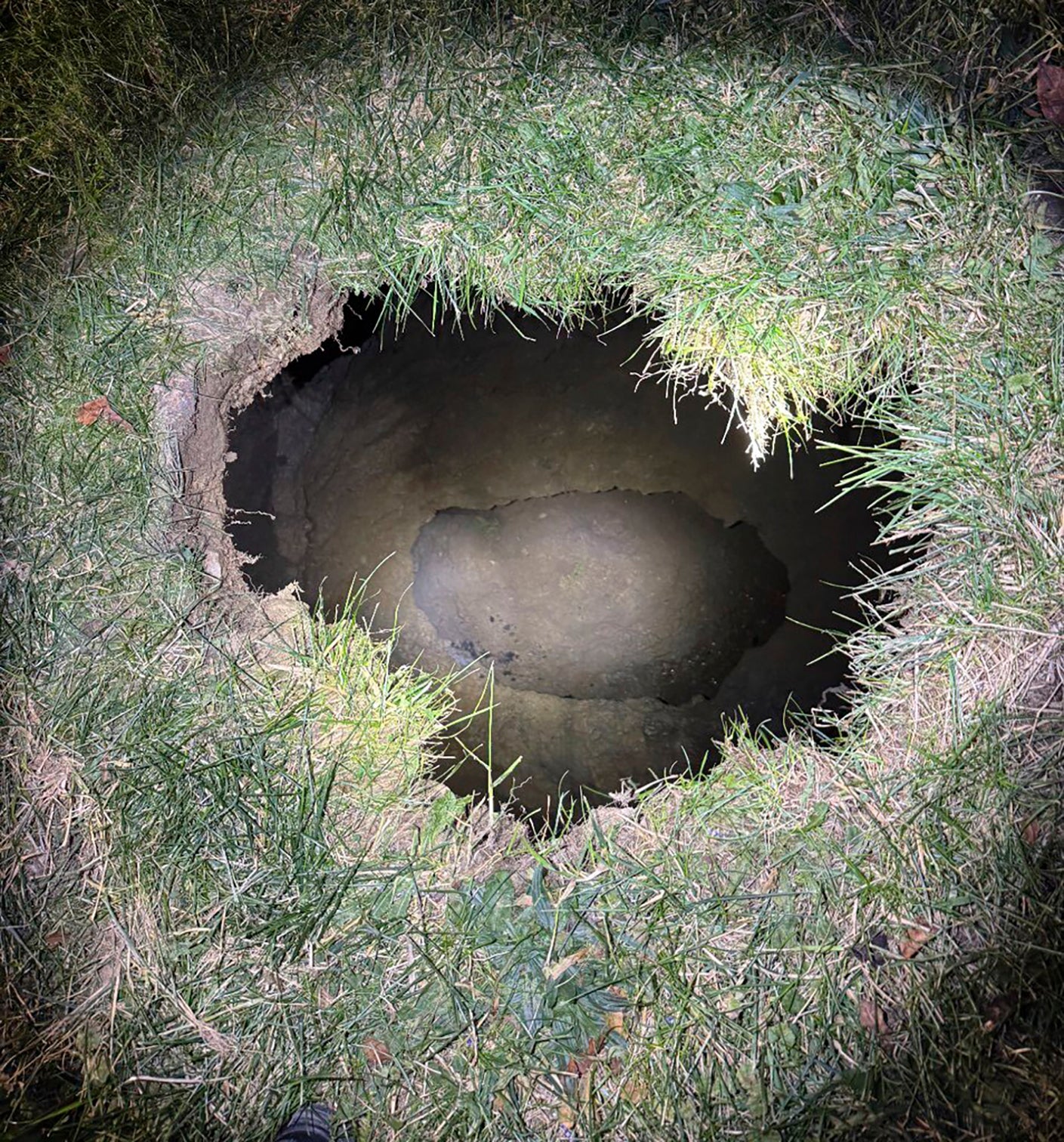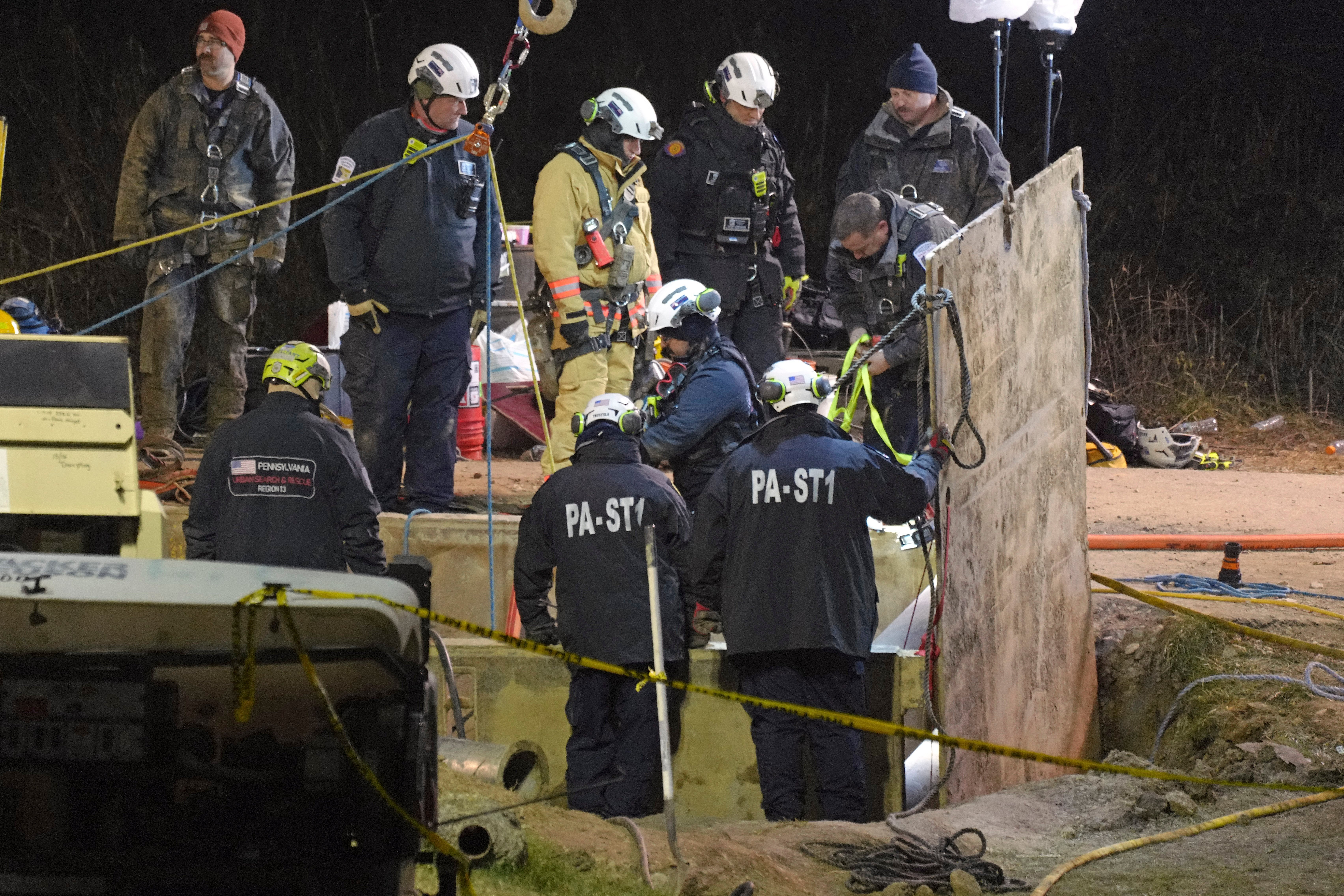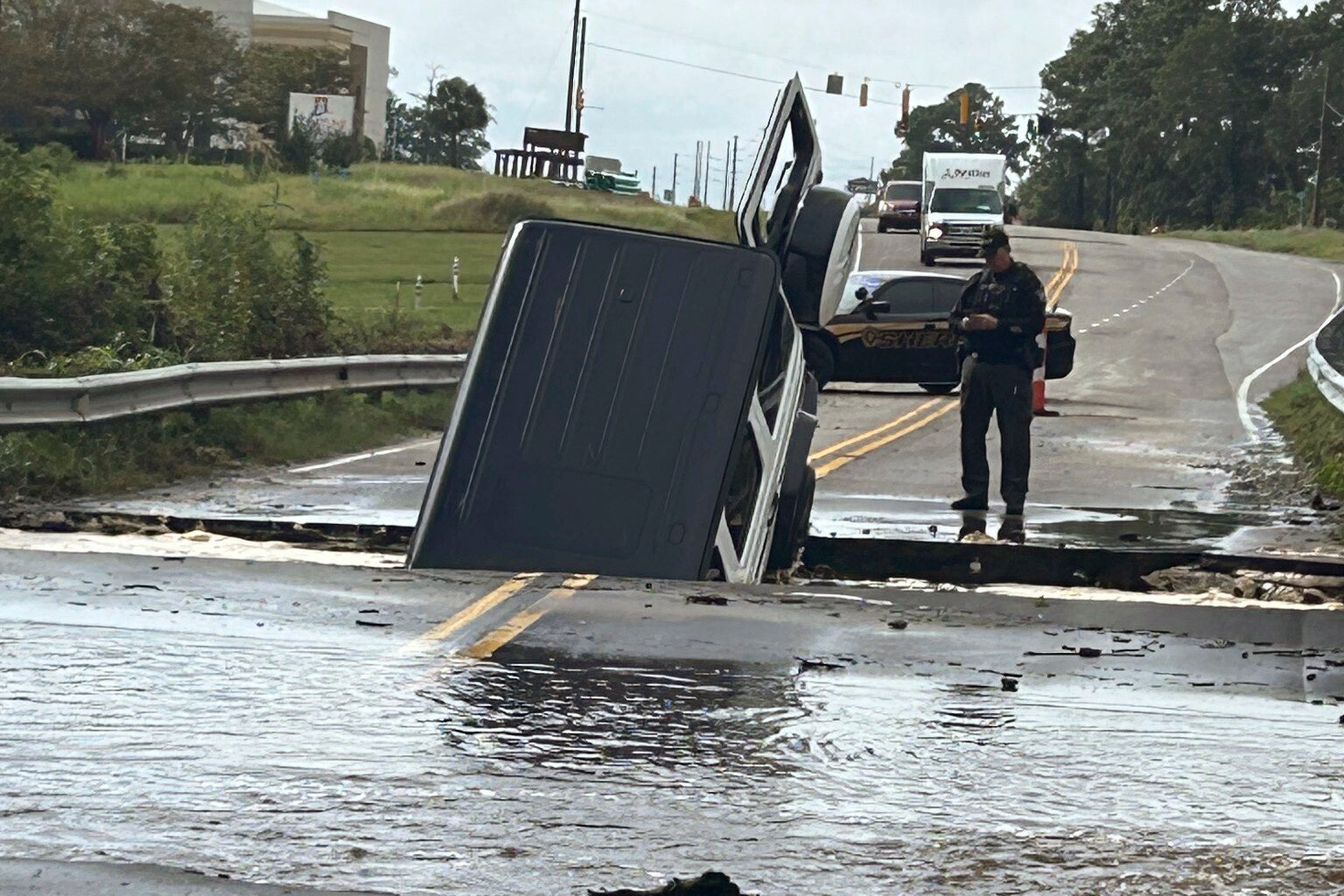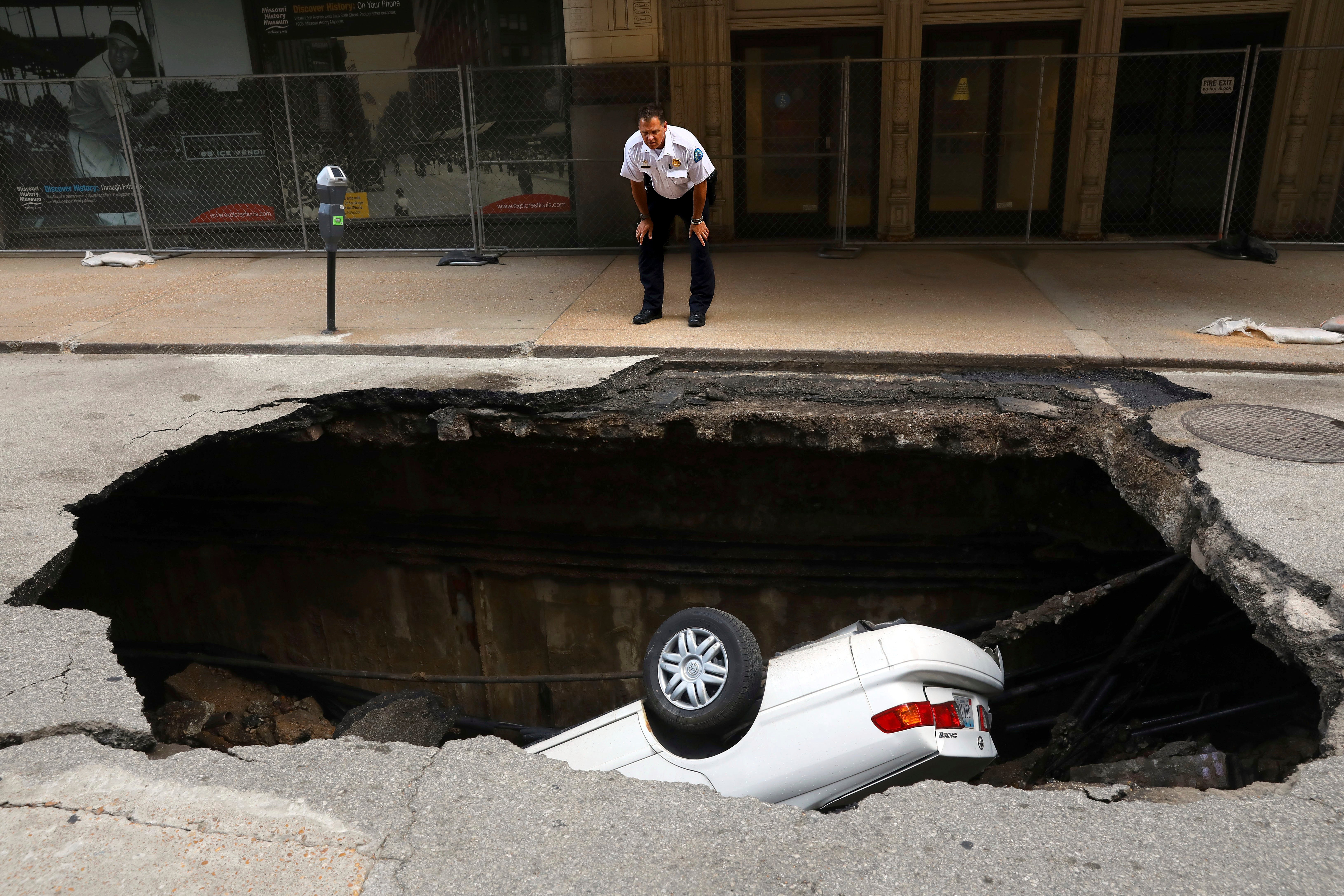Desperate search for grandma who ‘fell in sinkhole while looking for pet cat’
Pennsylvania State Police lowered a camera lowered into the hole on Tuesday

Your support helps us to tell the story
From reproductive rights to climate change to Big Tech, The Independent is on the ground when the story is developing. Whether it's investigating the financials of Elon Musk's pro-Trump PAC or producing our latest documentary, 'The A Word', which shines a light on the American women fighting for reproductive rights, we know how important it is to parse out the facts from the messaging.
At such a critical moment in US history, we need reporters on the ground. Your donation allows us to keep sending journalists to speak to both sides of the story.
The Independent is trusted by Americans across the entire political spectrum. And unlike many other quality news outlets, we choose not to lock Americans out of our reporting and analysis with paywalls. We believe quality journalism should be available to everyone, paid for by those who can afford it.
Your support makes all the difference.A huge search is ongoing for a grandmother who is believed to have fallen into a sinkhole while looking for her lost cat.
Rescuers worked late into the night on Tuesday to try and find the woman.
The family of Elizabeth Pollard, 64, called police at about 1am on Tuesday to say she had not been seen since going out on Monday evening to search for Pepper, her cat.
Crews lowered a pole camera with a sensitive listening device into the hole in Marguerite on Tuesday morning but it detected nothing.
A camera lowered into the hole showed what could be a shoe about 30 feet (nine metres) below the surface, according to Pennsylvania State Police spokesperson, trooper Steve Limani.
“It almost feels like it opened up with her standing on top of it,” Mr Limani said.
Police said they found Ms Pollard‘s car parked near Monday’s Union Restaurant in Marguerite, about 40 miles (65 kilometres) east of Pittsburgh. Ms Pollard‘s five-year-old granddaughter was found safe inside the car.

The manhole-sized opening had not been seen by hunters and restaurant workers who were in the area in the hours before Ms Pollard‘s disappearance, leading rescuers to speculate the sinkhole was new.
Authorities used an excavator to dig in the area, where temperatures dropped to below freezing overnight.
“We are pretty confident we are in the right place. We’re hoping there is still a void she could be in,” Pleasant Valley Volunteer Fire Company chief John Bacha told Triblive.
By late afternoon, searchers were using access to a mine to try to find her and had dug a separate entrance out of concern that the ground around the sinkhole opening was not stable. Authorities vowed to keep searching for Ms Pollard until she is found.
Ms Pollard lives in a small neighbourhood across the street from where her car and granddaughter were located, Mr Limani said.
The young girl “nodded off in the car and woke up. Grandma never came back,” Mr Limani said. The child stayed in the car until two troopers rescued her. It is not clear what happened to Pepper.

Police said sinkholes are not uncommon because of subsidence from coal mining activity in the area.
A team from the Pennsylvania Department of Environmental Protection, which responded to the scene, concluded the underground void is likely the result of work in the Marguerite Mine, last operated by the HC Frick Coke Company in 1952. The Pittsburgh coal seam is about 20 feet (six metres) below the surface in that area.
How common are sinkholes?
Sinkholes are most common in what geologists call karst terrain, which involves types of rock including limestone below the land surface that can naturally be dissolved by groundwater circulating through them. They can also happen due to old underground mines.

The most damage from sinkholes in the U.S. tends to occur in Florida, Texas, Alabama, Missouri, Kentucky, Tennessee and Pennsylvania. Florida, for example, is highly susceptible to sinkholes because it sits above limestone.
How big are sinkholes?
Sinkholes can range in size from holes that are just a few feet wide to ones that cover a vast area spanning hundreds of acres. Their depth can also vary from just a few inches to more than 100 feet (more than 30 meters). Some are shaped like shallow bowls or saucers, whereas others have vertical walls. Some hold water and form ponds.
In June, a giant sinkhole in southern Illinois swallowed the center of a soccer field built on top of a limestone mine, taking down a large light pole and leaving a gaping chasm where squads of kids often play. No one was hurt.

In 2023, a sinkhole that in 2013 fatally swallowed a man sleeping in his house in suburban Tampa, Florida, reopened for a third time, but it was behind chain-link fencing and caused no harm to people or property. Officials said the sinkhole reopening was not unusual, especially in central Florida with its porous limestone base.
A large sinkhole opened up in 2020 in South Dakota near where a man was mowing his lawn. Testing revealed a large, improperly sealed mine beneath part of the housing subdivision, and a 40-foot-deep (12-meter-deep) pit mine in another corner of the neighborhood, a lawyer for some of the area homeowners said. Since the first giant collapse, more sinkholes have appeared.
A large sinkhole that swallowed oil field equipment and some vehicles in southeastern Texas in 2008 expanded in 2023 when another sinkhole developed and joined the first one.
Join our commenting forum
Join thought-provoking conversations, follow other Independent readers and see their replies
Comments